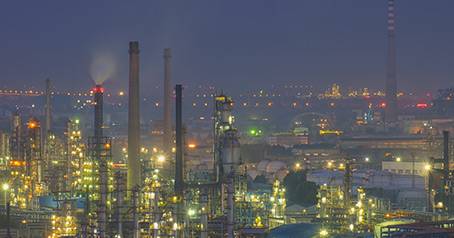Dec . 03, 2024 17:32 Back to list
pvc irrigation pipe
The Advantages of PVC Irrigation Pipes for Efficient Water Management
Water is a vital resource for agricultural productivity, and efficient irrigation systems are essential for ensuring sustainable crop growth. Among the various materials available for irrigation infrastructure, PVC (polyvinyl chloride) pipes have gained immense popularity. This article explores the advantages of PVC irrigation pipes and their role in modern agricultural practices.
Durability and Longevity
One of the key benefits of PVC irrigation pipes is their exceptional durability. Unlike traditional materials such as metal or concrete, PVC is resistant to corrosion and chemical degradation, which is particularly important in agricultural settings where fertilizers and pesticides may be used. PVC pipes can withstand various environmental conditions, including extreme temperatures and soil acidity, ensuring a longer lifespan and reducing the need for frequent replacements.
Lightweight and Easy to Install
Another significant advantage of PVC irrigation pipes is their lightweight nature. This characteristic makes them easier to handle and install compared to heavier alternatives. Farmers and irrigation specialists can save time and labor costs during the installation process. The ease of cutting and joining PVC pipes further simplifies the assembly, allowing for quick modifications to the irrigation layout as needed.
Cost-Effectiveness
PVC irrigation pipes are also known for their cost-effectiveness. The initial investment in PVC piping may be lower than that of higher-end materials like HDPE (high-density polyethylene) or galvanized steel. Additionally, the longevity and reduced maintenance costs associated with PVC contribute to long-term savings for farmers. Given that water conservation is a critical aspect of sustainable agriculture, the affordability of PVC piping systems supports effective water management practices without straining financial resources.
pvc irrigation pipe

High Flow Capacity
PVC pipes have a smooth internal surface, resulting in lower friction losses compared to other materials. This feature enables a high flow capacity, which is essential for efficient water delivery in irrigation systems. With proper sizing and design, PVC pipes can deliver water efficiently to crops, ensuring they receive the necessary moisture for optimal growth. Additionally, they are less prone to clogs, minimizing downtime and maximizing productivity.
Versatility in Design
PVC irrigation pipes are versatile in their applications, making them suitable for various irrigation methods such as drip, sprinkler, and surface irrigation. This flexibility allows farmers to tailor their irrigation systems to the specific needs of their crops and regional climate conditions. Furthermore, PVC pipes can be used in both above-ground and underground settings, offering a range of design options for optimizing space and efficiency on the farm.
Environmental Considerations
In the context of sustainable agriculture, using PVC irrigation pipes can contribute to improved water management practices. Their resistance to leakage and ease of repair reduces water wastage, promoting responsible water use. Furthermore, the production of PVC has become more environmentally friendly in recent years, with manufacturing processes focusing on reducing emissions and energy consumption.
Conclusion
In summary, PVC irrigation pipes present numerous advantages that make them an excellent choice for modern agricultural irrigation systems. Their durability, lightweight properties, cost-effectiveness, high flow capacity, and versatility position them as a reliable solution for efficient water management. As farmers continue to seek sustainable practices in the face of growing environmental challenges, the adoption of PVC pipes can play a significant role in enhancing agricultural productivity while conserving precious water resources. In a world increasingly aware of the need for sustainability, PVC irrigation pipes stand out as a practical and responsible choice for farmers around the globe.
-
High-Quality PPR Pipes and Fittings Durable ERA PPR & PVC PPR Solutions
NewsJul.08,2025
-
Black HDPE Cutting Board - Durable, Non-Porous & Food Safe HDPE Plastic Cutting Board
NewsJul.08,2025
-
High-Quality CPVC Panel Durable HDPE & PVC Panels Supplier
NewsJul.08,2025
-
Double PE Welding Rod Supplier - High Strength, Durable & Versatile Welding Solutions
NewsJul.07,2025
-
High-Quality PVC-O Pipe Supplier Durable 75mm PVC Pipe & Connections Leading PVC Pipe Company
NewsJul.07,2025
-
HDPE Drainage Pipe Supplier – Durable & Corrosion-Resistant Solutions
NewsJul.06,2025

